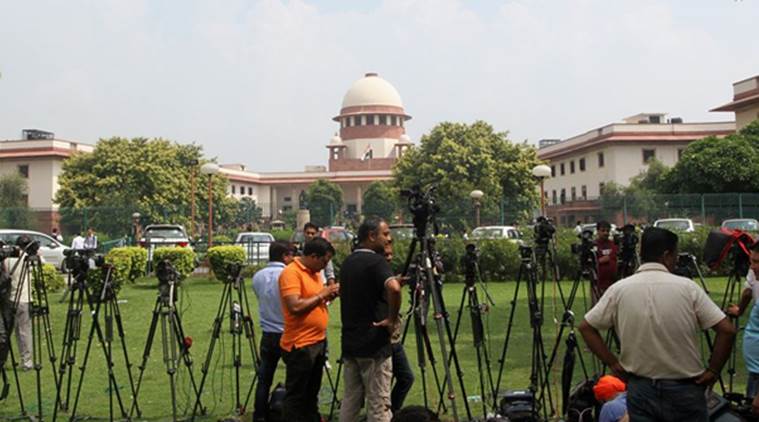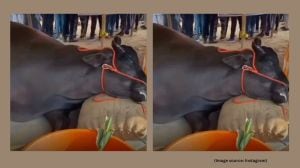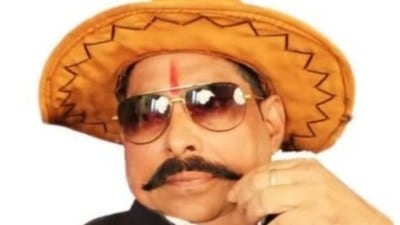A woman does not lose her religious identity after marrying a man from another faith until she converts on her own, the Supreme Court said on Thursday.
The court also asked a Parsi trust in Gujarat to explore an amicable settlement regarding the demand of a Parsi woman, who had married a Hindu, to allow her to attend the last rites of her parents when the need arises.

Hearing a petition filed by the woman, Goolrokh M Gupta, a five-judge Constitution Bench headed by Chief Justice of India Dipak Misra asked the trust counsel Gopal Subramanium to apprise it on December 14 if she could be allowed to enter the Tower of Silence, where the dead of the community are laid to rest.
Story continues below this ad
“You must tell the trustees… rigidity is not always a correct principle of understanding a concept of religion. Less rigidity attracts more…,” the CJI told Subramanium.
Goolrokh had married a Hindu but retained her faith. She moved the apex court against a 2010 Gujarat High Court order that upheld the Parsi customary law that a woman marrying outside the community loses her religious rights as a Parsi.
She had approached the High Court against the directions of community elders that Parsis marrying outside the community will not be allowed to enter the Tower of Silence as they are deemed to have taken their spouse’s religion upon marriage. She apprehended that the same fate may fall upon her when her parents pass away, and sought relief from the court.
The Constitution Bench, also comprising Justices A K Sikri, A M Khanwilkar, D Y Chandrachud and Ashok Bhushan, observed that “there is no law which says that a woman loses religious identity after marrying a man from another faith”.
Story continues below this ad
Justice Sikri said the “purpose of Special Marriage Act is that two persons can marry and retain their identity”. The CJI added that “only she can take away that right by her own choice”.
CJI Misra said, “The question is what will prevail — the Constitutional identity of a woman or religious beliefs.” On Goolrokh, he added, “Unless there is a conversion to another religion, there must be a presumption that she retains her religion.”
Appearing for the appellant, senior counsel Indira Jaising said the practice was not part of Parsi personal law but can at best be called a custom. However, it fails the test of continuity which is fundamental to a custom, and also the apex court had laid down that any custom must past the test of public policy, morality and decency, she said.
To this the CJI said, “Custom cannot be decided in a writ petition. Let’s not get there. Let’s limit to the question of the lady today.”
Story continues below this ad
“A man marries outside the community and is permitted to retain his religious identity and a woman is not allowed to marry outside and retain her religious identity. How can a woman be debarred…,” the bench asked.
The court asked a Parsi lawyer, who was present in court, about the practice among the community in Delhi. She replied that in Delhi the trustees never prevented any woman who married outside the community from entering the Temple of Fire or Tower of Silence. At this, the bench said the issue then appeared to be limited to the trust in question. Jaising replied that opinion was divided in the said trust, with some members favouring Goolrokh’s entry.

 The Supreme Court of India (Express Photo/Premnath Pandey)
The Supreme Court of India (Express Photo/Premnath Pandey)






